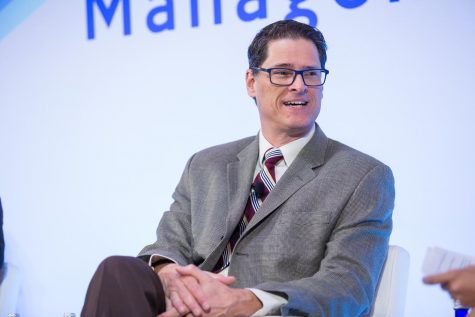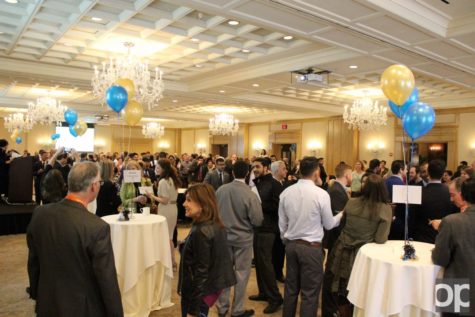Work less, sleep more: Workplace stress causes sleep loss
Stress. It seems to be something everybody of all ages is experiencing these days. In studies conducted by the American Psychological Association, millennials feel the effects of stress more than Generation X— though the Gen Xers aren’t too far behind. It’s also no secret one of the key factors that contributes to stress is work.
What people may not know is that workplace stress affects sleep. A recent study led by Oakland University professor Caitlin Demsky, Ph.D., reveals that stress experienced in the workplace can, in fact, affect sleeping patterns. The study was published in the Journal of Occupational Health Psychology.
“Sleep quality is crucial because sleep plays a major role in how employees perform and behave at work,” Demsky said of the study. “In our fast-paced, competitive professional world, it is more important than ever that workers are in the best condition to succeed, and getting a good night’s sleep is key to that.”
The American Institute of Stress (AIS) reported 40 percent of people have said that their job was “very or extremely stressful.” As the number of people who are stressed at work increases, so does work incivility.
According to Demsky’s study, work incivility is “low-intensity deviant behavior with ambiguous intent to harm the target, in violation of workplace norms for mutual respect.” There has been an increase in work incivility, going from 50 percent in 1998 to 62 percent in 2014. Work incivility can affect psychological and physical well-being, lead to reduced job satisfaction, and increase stress and irritability.
People who have experienced rude or negative behavior at work were linked to experiencing insomnia or symptoms leading to insomnia such as waking up multiple times throughout the night, according to the study.
Attitudes are changing in the workplace and most of the negative behavior people experience comes from coworkers. AIS states that 14 percent of people have wanted to hit a coworker, but didn’t, and 18 percent of people had experienced some sort of threat or verbal intimidation.
OU junior Jessica Harper has worked in the restaurant industry for six years and has been a manager for three of those years. She has experienced multiple accounts of workplace incivility at her job at Taco Bell. The most recent incident occurred last week.
“The most stressful part of my job is the customers, but I’ve had a couple of incidences with my coworkers as well,” Harper said. “Last week I had an employee that was just hired tell me that I didn’t know how to do my job when I have been working at Taco Bell for five years. I was the manager on duty and I put her in her place by saying that if this were a corporate level job and you spoke to your boss like you did to me just now, you would be fired. She stopped talking after that.”
Demsky’s study focused specifically on negative work rumination, which refers to preoccupied negative work experiences and the inability to switch off work related thoughts. Harper often deals with work from home when she is not in the office.
“I usually get calls while I’m at home from work,” she said. “The other supervisors with less experience than I have are usually calling me to ask questions, or I have to come in because someone called off. So usually whenever I’m at home I’m working or thinking about work. I’m never fully relaxed.”
Fortunately, there is a way to reduce workplace stress by taking “mental breaks,” according to Demsky. This is especially important for people who are working while going to school.
“Workplace stress is something that students deal with and struggle with especially if they are going to school and working at the same time,” Demsky said. “They have an extra layer of stress added to them. So if you’re a student and you’re going to classes and you’re juggling a part-time, sometimes full-time job, you’re juggling expectations from multiple roles… It can be really difficult to balance those two.”
While most people want to go straight to bed after work, it is important to partake in a relaxing activity that will erase thoughts of negative work experiences. Some of these activities can include exercising, meditating, watching TV and reading a book.
OU sophomore Jordan Taylor works at the front desk at LaVida Massage. The massage therapists at his job cause him stress.
“They are pretty rude to the people at the front desk, especially if they don’t have a lot of appointments booked for that day,” he said. “Honestly, it’s very frustrating.”
However, Taylor always destresses after work by going to the gym.
“I’m really into boxing,” he said. “I usually go to the gym after work and punch on a punching bag to get out all my aggression. It definitely helps a lot and I don’t end up going home in a bad mood, which if I do usually leads into me getting into an argument with my sister or mom.”
Constantly thinking negative thoughts about work may also play a part in several health problems including cardiovascular disease, increased blood pressure and fatigue, according to the study.
These microaggressions are a part of everyday life and will not be going away. They are an inescapable part of a work environment. But while these issues come with being an adult, it is best to find a way to deal with them in a healthy manner. Take time to relax, work will be there in the morning.







